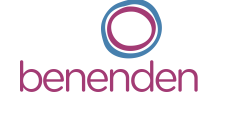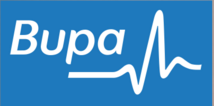Does acupuncture really work for headaches?
Acupuncture has long been practiced as a form of alternative medicine, offering potential relief from a variety of conditions, including headaches. But does it really work? Let’s delve into the world of acupuncture and explore its effectiveness in alleviating headache pain.
Understanding Acupuncture
Before delving into the efficacy of acupuncture for headaches, it’s important to understand the practice itself. Acupuncture originated in China thousands of years ago and is based on the concept of energy flow, or “qi,” through the body. By inserting thin needles into specific points along the body’s meridians, acupuncture aims to restore balance and promote healing.
Acupuncture is not just a standalone treatment but is often used in conjunction with other Traditional Chinese Medicine (TCM) practices such as cupping therapy, moxibustion, and herbal medicine. These modalities work together to address the root cause of health issues and provide a holistic approach to healing.
The History of Acupuncture
The roots of acupuncture can be traced back to ancient China, where it was developed as part of Traditional Chinese Medicine (TCM). TCM views health as the harmonious balance of yin and yang energies within the body. Acupuncture, along with herbal medicine and other modalities, was used to restore this balance and treat various ailments, including headaches.
Over time, acupuncture spread to other parts of Asia and eventually gained popularity in the Western world. Today, acupuncture is recognized as a complementary therapy that can be used in conjunction with conventional medicine to address a wide range of health conditions.
The Science Behind Acupuncture
While the practice of acupuncture has been around for centuries, modern science is still exploring the exact mechanisms behind its efficacy. Recent studies have suggested that acupuncture may help regulate the body’s nervous system, stimulate blood flow, and promote the release of natural pain-relieving substances, such as endorphins.
Researchers are also investigating the role of acupuncture in reducing inflammation, improving immune function, and enhancing overall well-being. As the scientific community continues to study acupuncture, more insights are being gained into how this ancient practice can benefit modern healthcare approaches.
The Connection Between Acupuncture and Headaches
Now let’s shift our focus to the specific relationship between acupuncture and headaches. TCM views headaches as a disruption in the flow of qi and blood along the meridians. By targeting specific points related to the head and neck, acupuncture aims to restore the proper flow of energy and relieve headache symptoms.
Acupuncture has been used for centuries in Traditional Chinese Medicine (TCM) as a holistic approach to treating various ailments, including headaches. The philosophy behind TCM is based on the concept of balance and harmony within the body’s energy system. When this balance is disrupted, it can manifest as physical symptoms such as headaches.
Traditional Chinese Medicine’s View on Headaches
According to TCM, headaches can arise from various imbalances in the body, such as liver qi stagnation, blood deficiency, or dampness. Acupuncture seeks to address these underlying imbalances and provide long-term relief from headaches by restoring harmony to the body’s energetic system.
Furthermore, TCM considers external factors such as weather changes, stress, and diet as contributing factors to the development of headaches. Acupuncture aims to not only treat the symptoms but also address the root cause of the headaches to prevent future occurrences.
How Acupuncture Targets Headache Pain
When it comes to treating headaches with acupuncture, practitioners target specific points on the body that correspond to the head and neck. These points are carefully chosen based on the individual’s symptoms and TCM diagnosis. By stimulating these points, acupuncture aims to alleviate pain, reduce inflammation, and promote overall well-being.
Acupuncture is believed to stimulate the release of endorphins, which are the body’s natural painkillers, providing relief from headache pain. Additionally, acupuncture can help improve blood circulation and reduce muscle tension in the neck and shoulders, which are common areas of tension associated with headaches.
Evaluating the Effectiveness of Acupuncture for Headaches
While many individuals report positive experiences with acupuncture for headache relief, it’s essential to evaluate its effectiveness through both medical research and patient testimonials.
Acupuncture, an ancient practice rooted in Traditional Chinese Medicine, involves the insertion of thin needles into specific points on the body to promote healing and alleviate pain. The theory behind acupuncture for headaches revolves around restoring the flow of energy, or qi, in the body to achieve balance and relieve discomfort.
Interpreting Medical Research on Acupuncture and Headaches
A number of clinical studies have explored the impact of acupuncture on headaches. These studies have shown promising results, indicating that acupuncture may be an effective treatment option for migraine and tension-type headaches. Researchers believe that acupuncture may help regulate neurotransmitters, reduce inflammation, and modulate pain perception, contributing to its potential efficacy in headache management. However, more research is needed to fully understand how acupuncture compares to other conventional treatments and to identify which individuals may benefit the most.
Furthermore, the placebo effect, where a patient experiences a benefit after receiving an inactive treatment due to their belief in its effectiveness, can also play a role in the perceived success of acupuncture for headaches. Understanding the mechanisms behind this phenomenon is crucial in accurately assessing the true impact of acupuncture on headache relief.
Patient Testimonials and Experiences
Beyond medical research, it’s important to consider the firsthand experiences of individuals who have tried acupuncture for headache relief. Many people have found acupuncture to be a valuable tool in managing their symptoms, with some even reporting a significant reduction in the frequency and intensity of their headaches. The holistic approach of acupuncture, which takes into account the individual’s overall health and well-being, resonates with those seeking natural and alternative therapies for their headaches.
It’s worth noting that the subjective nature of patient testimonials, while valuable in providing insights into personal experiences, may not always align with objective clinical outcomes. Variability in responses to acupuncture treatment among different individuals underscores the need for personalized and comprehensive headache management strategies.
Risks and Considerations of Acupuncture for Headaches
While acupuncture is generally safe when practiced by trained professionals, there are certain risks and considerations to keep in mind when considering it as a treatment option for headaches.
Acupuncture, an ancient Chinese healing practice, involves the insertion of thin needles into specific points on the body to help alleviate various ailments, including headaches. The theory behind acupuncture is that it helps to balance the flow of energy, known as Qi, within the body. By stimulating specific points, acupuncturists aim to restore harmony and promote healing.
Potential Side Effects of Acupuncture
Although rare, some individuals may experience side effects from acupuncture, such as mild soreness, bruising, or dizziness. It’s important to choose a qualified acupuncturist who follows proper hygienic procedures and uses sterile needles to minimize any potential risks.
Furthermore, it’s essential to communicate openly with your acupuncturist about any pre-existing conditions or concerns you may have. This will help them tailor the treatment to your specific needs and minimize the risk of adverse effects.
Who Should Avoid Acupuncture?
While acupuncture is generally safe, there are certain individuals who should avoid this treatment option. Pregnant women, individuals with bleeding disorders, or those with a compromised immune system should consult with their healthcare provider before considering acupuncture for headache relief.
Additionally, individuals with a fear of needles or those who are unable to lie still for an extended period may not be suitable candidates for acupuncture treatment. It’s important to discuss any reservations or anxieties you may have with your acupuncturist to ensure a comfortable and effective treatment experience.
Alternatives to Acupuncture for Headache Relief
For those who are hesitant about trying acupuncture or wish to explore other options, there are alternative approaches to headache relief worth considering.
Western Medicine’s Approach to Treating Headaches
Western medicine offers a range of treatments for headaches, including over-the-counter pain medications, prescription drugs, and lifestyle modifications. It’s important to work closely with a healthcare professional to find the most appropriate treatment approach for your specific needs.
Over-the-counter pain medications such as ibuprofen or acetaminophen can be effective in managing mild to moderate headaches. For more severe or chronic headaches, prescription medications like triptans or beta-blockers may be prescribed by a healthcare provider. Lifestyle modifications, such as identifying and avoiding headache triggers, maintaining a regular sleep schedule, and managing stress levels, can also play a crucial role in headache management.
Natural Remedies for Headache Relief
In addition to acupuncture and conventional medicine, natural remedies may provide some relief for headaches. These can include applying cold or hot compresses, practicing relaxation techniques, such as meditation or yoga, staying hydrated, and getting adequate rest.
Cold compresses can help constrict blood vessels and reduce inflammation, providing relief for tension headaches. On the other hand, hot compresses can help relax tense muscles and improve blood flow, which may be beneficial for migraines. Incorporating relaxation techniques into your daily routine can help reduce stress and tension, which are common triggers for headaches. Ensuring proper hydration and getting enough rest are fundamental aspects of maintaining overall health and may help prevent headaches.
In Conclusion
In conclusion, acupuncture holds promise as a potential treatment option for headaches. While the exact mechanisms behind its effectiveness are not fully understood, both medical research and patient testimonials suggest that acupuncture may provide relief from headache pain. However, it’s essential to consult with a qualified acupuncturist and consider individual factors before pursuing this alternative therapy. Ultimately, the decision should be made in consultation with a healthcare professional who can help determine the most suitable approach for managing your headaches.





















